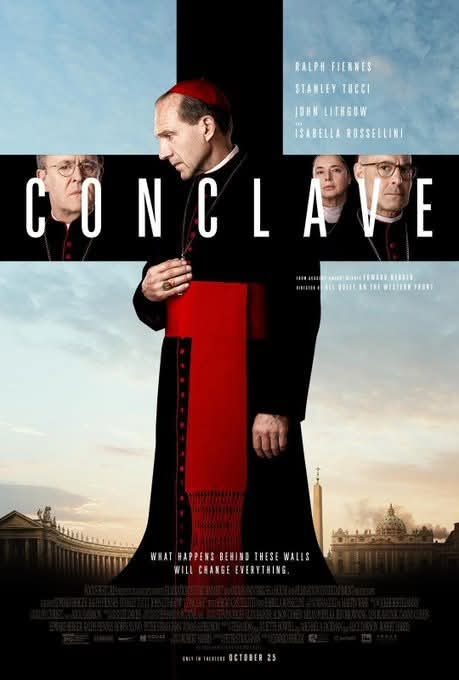
The Death of Pope Francis: The Political Reality
|
الاستماع للمقال صوتياً
|
by Ahmed Elmesery
The sudden death of Pope Francis sparks not only a real-life transition in the Vatican but also resonates with the dramatic narrative of the film Conclave a tale of secrecy, power, and moral reckoning. The election of a new pope is not merely a change of office; it is a moment that could alter the course of history. The film takes us on a visual journey inside the closed walls of the Vatican, where cardinals confront not only one another in their attempt to choose a successor, but also their own internal conflicts and last-minute revelations.
The story begins with the unexpected death of the Pope, Cardinals from all over the world are summoned to a secret conclave to choose his successor, led by Cardinal “Thomas Laurence”, played by “Ralph Fiennes”. Within the secretive walls of the Vatican, political and religious tensions erupt as the battle for the papal seat unfolds. Along the way, Cardinal “Thomas” uncovers shocking secrets left behind by the deceased pope secrets that could threaten the stability of the Catholic Church.,
Based on the 2016 novel by British writer “Robert Harris”, the film was released in 2024 with a screenplay by “Peter Straughan” and directed by “Edward Berger”. Conclave was featured in prestigious international festivals, including the Toronto International Film Festival, San Sebastián, and Telluride. It won the 2025 Academy Award for Best Adapted Screenplay and the Golden Globe for Best Screenplay the same year.
Measured Pacing, Charged Frames, and Refined Performances
The film opens with a slow rhythm, reflecting the tension and stillness before the decisive moment inside the Vatican. The director allows the viewer time to contemplate and explore the ancient corridors of the Vatican before the pace gradually intensifies with the unfolding drama. The camera movement is deliberate, seamlessly shifting between still shots and narrow, elongated frames that enhance the sense of secrecy. The visual composition cleverly uses architectural depth and space to amplify feelings of isolation and mystery.
The acting is a true strength of the film, “Ralph Fiennes” delivers a mature performance as Cardinal “Laurence”, blending intelligence, caution, and deep human values. He stands on the edge between certainty and doubt; his calm features hide an internal struggle that grows as the story unfolds. The rest of the cast succeeds in generating tension through complex relationships and subtle reactions, avoiding exaggeration. Their glances and gestures communicate conflicts deeper than words, keeping viewers on edge as every moment feels on the verge of explosion.
A Struggle Between Power and Principle
The director presents the unseen conflict among the cardinals. This is not merely a vote on leadership, but a true battle between authority, faith, personal gain, and moral principles, As the story develops, we discover that the choice of a new pope is never as simple as it seems. Each cardinal has personal motives that stretch beyond religious duty—into political interests and intricate agendas.
What remains most thrilling is the desire for change, especially when an explosion occurs outside the Vatican at a critical moment in the voting process. This explosion, threatening to disrupt the conclave, is a metaphor for the turmoil inside the Vatican itself. It reveals a harsh truth: our world is not only susceptible to religious and political conflict, but is also ruled by personal interests that influence major decisions.
A Female Touch Changes the Game
Though initially marginalized, the character of the nun proves central to the narrative. In a conclave traditionally dominated by men, she holds crucial information that could shake the foundations of the process. Her intervention reminds us that the silent voice can have a profound impact, and that influence can emerge from the most unexpected places.
When Human Values Rise Above All Else
Human values are the true hero of this film. The character of Cardinal Laurence, portrayed by Ralph Fiennes, challenges the stereotype of rigid religious figures. He is a man who values humanity over strict ideology. Even under pressure, he remains faithful to his principles, refusing to let the election become a mere political maneuver. His unwavering stance sends a powerful message: faith should be flexible, and human values must triumph over personal or political interests
